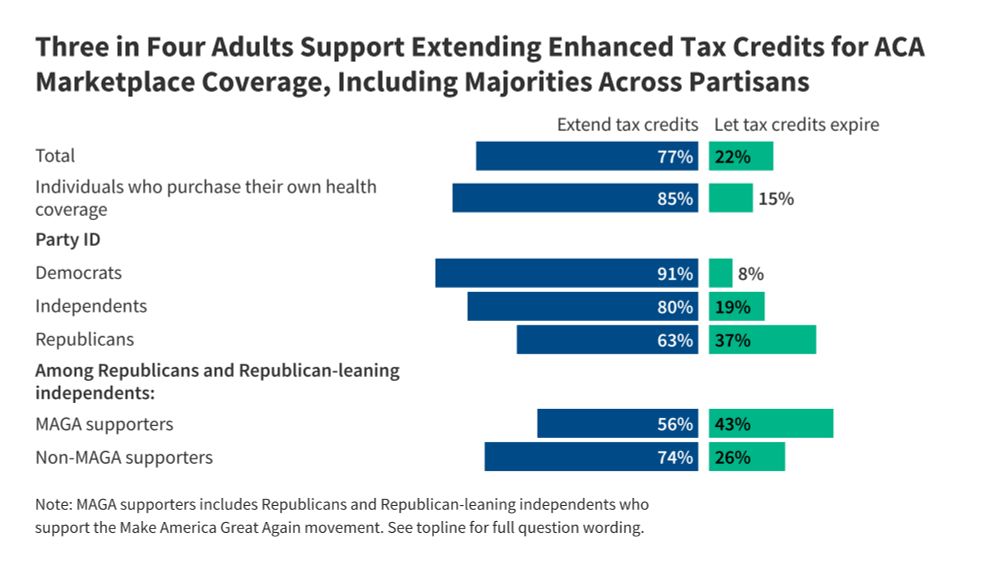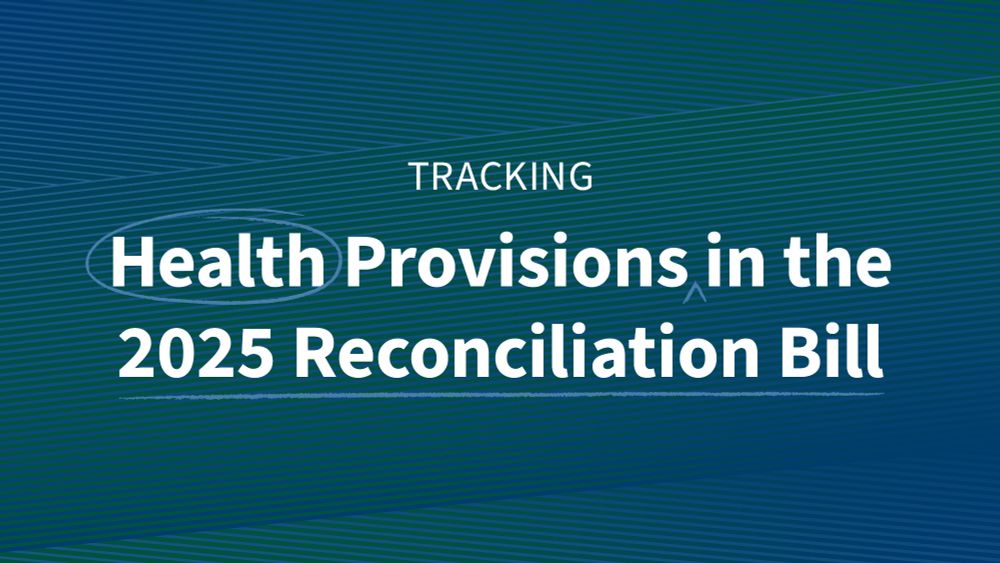Ashley Kirzinger
@ashleykirzinger.bsky.social
2.5K followers
290 following
110 posts
Pollster for KFF, Dog mom to Lemon and Poppy, Chicken mom to the Golden Girls
Women also poll feed: https://bsky.app/profile/did:plc:nd3beschhh3zzxsdoxxnntcb/feed/aaaeruj3mm6ew
Posts
Media
Videos
Starter Packs
Reposted by Ashley Kirzinger
Louise Norris
@louisenorris.bsky.social
· Jun 18

KFF Health Tracking Poll: ACA Enhanced Subsidies | KFF
KFF's Health Tracking Poll looks at public awareness and support for ACA Marketplace subsidies and finds that most adults are unaware the subsidies are set to expire soon. Three in four say Congress s...
www.kff.org















